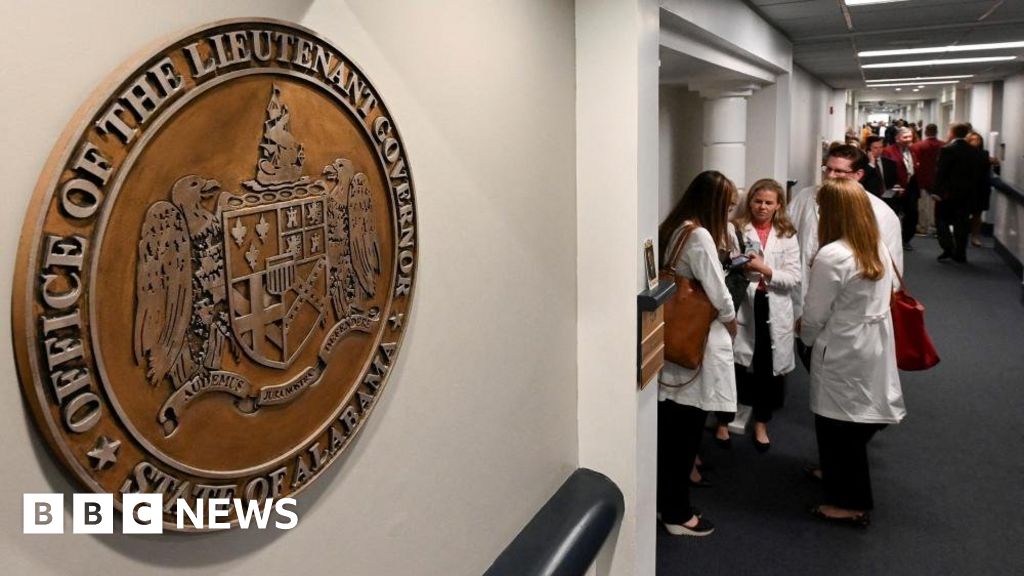Proponents of IVF have urged Alabama lawmakers to act quickly to protect access to fertility treatment in the state.
Both houses of Alabama's legislature have voted to approve bills that would protect women from prosecution if they damage or destroy an embryo created through in vitro fertilization (IVF).
The House and Senate must vote on a consolidated bill before it becomes law.
It follows a state Supreme Court ruling that frozen embryos have the same rights as children and that people can be held responsible for their destruction.
The ruling created a legal headache for clinics, many of which pulled services.
On Thursday, the Alabama House of Representatives passed a bill to grant legal immunity for “death or fetal harm to any individual or entity” responsible for providing IVF-related services.
Hours later, the state's Senate passed a similar measure.
A combined bill could be brought before both houses for a vote by next Wednesday, before being sent to Gov. Kay Ivey for approval.
Both bills come less than two weeks after Alabama's Supreme Court ruled that frozen embryos are considered children, which was opposed by medical professionals, IVF mothers and reproductive advocacy groups.
It has also divided devout Christians in the state, some of whom hailed it as a “beautiful protection of life” while others worried it could impose restrictions on fertility patients who want to have children.
The response has sent lawmakers scrambling to protect access to fertility treatments. It has also fueled political debates about women's reproductive rights and how the beginning of life is defined by the state.
The Republican-dominated House passed its bill 94-6 after nearly three hours of debate, during which some lawmakers expressed concern that it could undermine Alabama's pro-life statehood.
Republican Rep. Mark Gidley said he was concerned the bill was a “knee-jerk reaction” to the court ruling and that it was important the law recognized that frozen embryos are human life.
Another, Ernie Yarbock, asked whether IVF could be done “in a pro-life way that treats embryos as children.”
Others, such as Democratic Rep. Mary Moore, disagreed with the court's ruling and said it was important to protect IVF treatment for many families unable to have children.
Similar debates erupted in the state Senate. One senator, Republican Larry Stutz, described the issue as a “moral dilemma” but noted that embryos rejected through IVF represent a “tiny percentage” compared to embryos that are used or kept.
Lawmakers also heard from women who had undergone fertility treatment, one of whom testified before a House committee that she had spent almost $400,000 (£317,000) on IVF and said she believed the money was not wasted.
Republican Rep. Terry Collins, who initially brought the House bill forward, said his goal was to “at least keep clinics open and families moving forward” while lawmakers work on a long-term solution.
“This solution is to open clinics immediately, and that's what we're trying to do,” he said.


